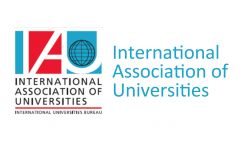Beder is recognized as a full rights member in International Association of Universities IAU

Beder is recognized as a full rights member in International Association of Universities IAU.
Administrative Board of the organization had examined the application of Beder University based on the default criteria, has decided that this institution fulfills all the standards to become a member of the association.
IAU is a module that enables its members to participate in a great variety of organizations worldwide being focused on the main topics of higher education and assembling experts and leaders from every region as well.
Based on this agreement Beder University has the opportunity to benefit from all the services that this association provides.
The use of internet of HEDBIB is another service that IAU provides for its members, which is a database on the higher education systems that includes the administration, planning, politics and evaluation. (www.iau-aiu.net/content/hedbib)
Recently, this association has provides Internationalization Strategies Advisory Service ISAS for its members.
Facts & Numbers:
IAU is founded in 1950 and it is the only international association about universities.
Based on UNESCO, IAU operates as an independent movement for higher education.
IAU joins more than 600 universities worldwide and the accession is increasing.
Despite institutional members, IAU has organizational members, subsidiaries and associations.
Functions
1. It brings higher education leaders together to build a global platform about the exchange of basic topics and new issues.
2. It maintains an unique database of the higher education institutions and education systems worldwide (WHED)
3. Analyses, monitors and informs on the contemporary tendencies in higher education through a comparative and international perspective.
4. Supports and promotes the interests of higher education community in international governmental bodies such as OKB, OBZHE, BB, KE, BE, ASEAN, AU etc
5. Enables the capacities and provides consulting based on the institutional demands on certain domains.